Microsoft Edge is the default browser for Windows systems and comes with built-in PDF reading functionality, allowing you to directly open, view PDF files.
However, some users have reported encountering the error message “PDF reader has been disabled in Microsoft Edge”, preventing them from properly viewing or editing PDF documents.
Why Has the PDF Reader Been Disabled in Edge?
The PDF reader in Edge may be disabled or malfunction for various reasons. Here are some of the common reasons.
- Browser settings issues: Edge’s settings may have been changed, causing the PDF reader function to be turned off.
- Extension conflicts: Installed browser extensions (especially those related to PDF or browser functions) might conflict with Edge’s PDF reader, causing it to malfunction.
- Browser version issues: If you are using an older version of the Edge browser, there may be compatibility issues preventing the PDF reader function from being enabled or displayed correctly.
- Group policy restrictions: Your organization may have disabled the PDF reader in Edge through Group Policy settings.
- Cache and cookie issues: Edge’s cache and cookie files may become corrupted or outdated, causing problems when the browser loads PDF files.
Once you understand these reasons, you can take appropriate measures to solve the problem.
How to Fix the “PDF Reader Has Been Disabled in Microsoft Edge” Issue
To address the issue of the PDF reader being disabled in Microsoft Edge, there are four simple solutions. Let’s try them one by one until the problem is resolved.
Method 1: Use an Alternative to Microsoft Edge PDF
MiniTool PDF Editor is a professional PDF editing tool available on Windows. It not only helps you view PDFs, but also supports viewing them in dark mode.
This tool lets you open, create, merge, and compress PDFs. You can also add text, themes, images, and highlights. It supports converting PDFs to and from formats like Word, Excel, and PowerPoint.
MiniTool PDF EditorClick to Download100%Clean & Safe
Here are the steps to open a PDF file.
Step 1: Launch MiniTool PDF Editor to enter its main interface.
Step 2: Click Open from the left side and choose the PDF you want to open. Then click Open.
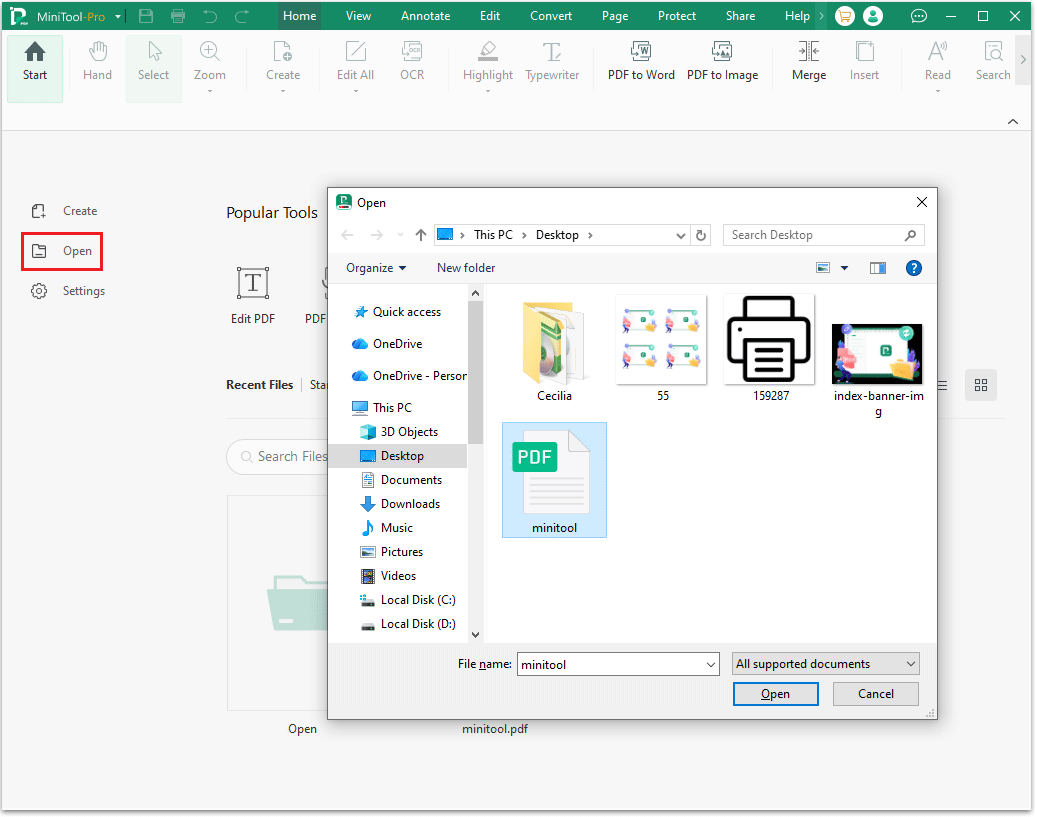
Method 2: Change the Edge Settings
If you wish to continue using Edge to open PDF files, please ensure that the PDF file’s viewing settings are not turned off.
Here are the steps:
Step 1: Open Microsoft Edge and click the three-dot menu at the top right. Then select Settings.
Step 2: Go to Privacy, search, and services on the left.
Step 3: Click Site permissions > All permissions > PDF documents.
Step 4: Turn off the Always download PDF files option. Then turn on PDF view settings.
2. The PDF view settings option will remember the location you were in when you last closed a PDF file and automatically redirect you to that page the next time you open the PDF file in your browser. Enabling it will improve the PDF viewing experience.
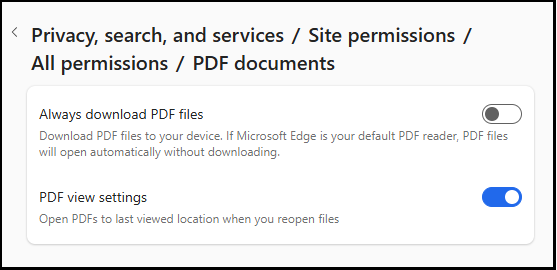
Method 3: Remove or Disable the Extensions in Microsoft Edge
If you have installed any browser extensions or security plugins for opening PDFs, please disable them first because they may interfere with Edge’s built-in PDF reader, causing the browser to fail to view PDF files correctly.
Here are the steps:
Step 1: Open Edge, type edge://extensions/ and press Enter.
Step 2: Turn off any PDF-related extensions or security plugins, or select Remove under the extension’s name.
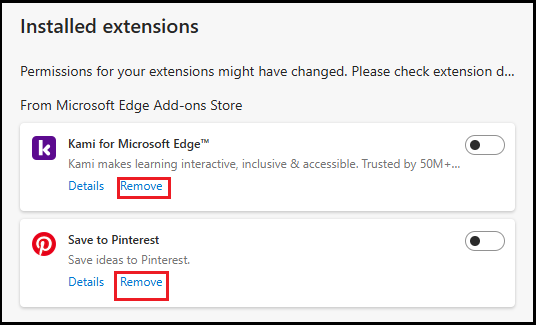
Method 4: Clear Cache and Cookies
Cache and cookies can sometimes cause webpage loading problems or prevent PDFs from opening.
Step 1: Open Edge and click the three-dot menu.
Step 2: Go to Settings > Privacy, search, and services.
Step 3: Click Clear browsing data and choose Choose what to clear. Then click Clear now.
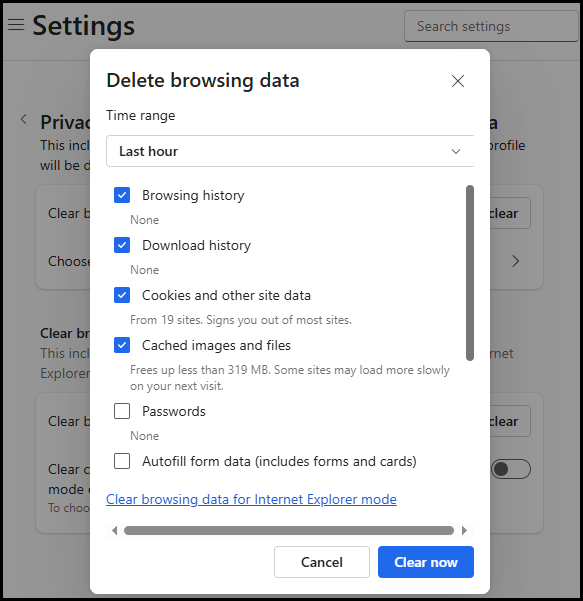
Method 5: Update Microsoft Edge
Ensure you are using the latest version to avoid known bugs.
Step 1: Click the three dots and select Settings.
Step 2: In the left-hand menu, select About Microsoft Edge. Edge will automatically check for updates. If an update is available, click Download and install.
After the update is complete, restart your browser.
Method 6: Set Microsoft Edge As the Default App to Open PDFs
You need to set Edge as your default PDF viewer.
Step 1: Press the Win + I keys to open the Settings window, select Apps > Default apps, and click the Choose default apps by file type.
Step 2: Scroll down to find .pdf from the left side, click the app icon next to it, and select Microsoft Edge from the pop-up window.
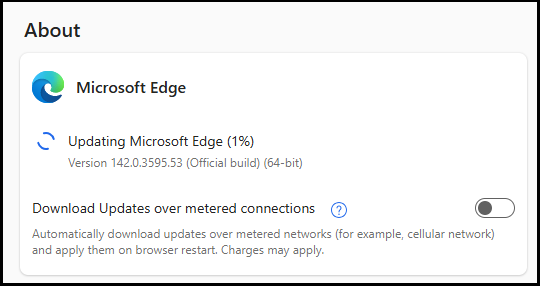
Method 7: Repair or Reset Microsoft Edge
If the above methods don’t work, you can try repairing or resetting Edge.
Repair Edge:
Step 1: Press Win + I to open Windows Settings.
Step 2: Click Apps and find Microsoft Edge in the list. Click Modify.
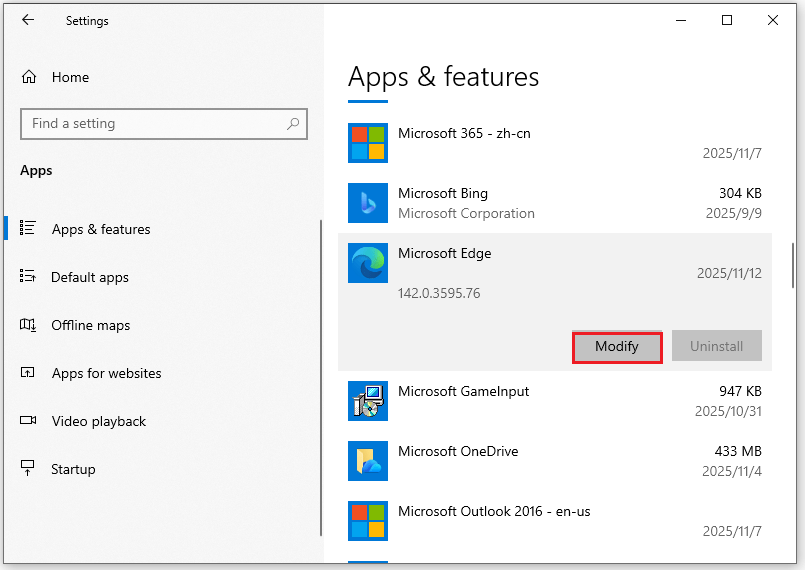
Step 3: Select Repair, and the system will automatically attempt to repair the Edge installation problem.
To reset Microsoft Edge, navigate to Settings > Reset settings, select Restore settings to their default values, and click Reset.
This process will remove temporary data, turn off extensions, and revert your startup page and search engine to default settings, while keeping your favorites, browsing history, and saved passwords intact.
Bottom Line
This article provides seven solutions to the “PDF Reader Has Been Disabled” problem in Microsoft Edge. If you have any questions while using the MiniTool PDF Editor, you can contact us via [email protected].
